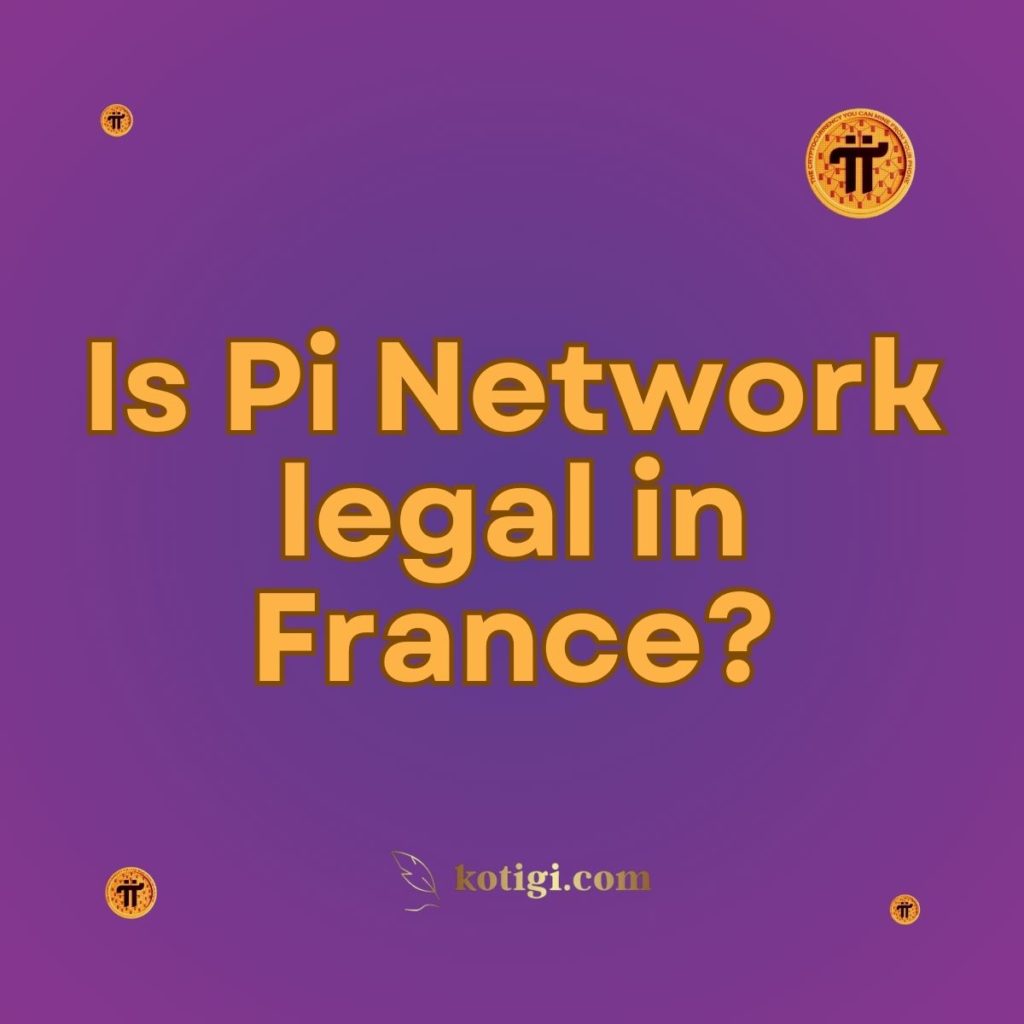
Is Pi Network legal in France?
The legality of Pi Network in France is influenced by several factors, including compliance with French financial regulations, consumer protection laws, and the broader European Union’s stance on cryptocurrencies. Below is an overview of the current legal status and key considerations for Pi Network in France:
1. Regulatory Status
1.1 Cryptocurrency Regulations in France:
Pi Network, like other cryptocurrencies, does not have a specific regulatory status in France. The French government has established a regulatory framework for cryptocurrencies, primarily through the Autorité des Marchés Financiers (AMF) and the Prudential Supervision and Resolution Authority (ACPR). These bodies ensure that cryptocurrency projects comply with anti-money laundering (AML) and counter-terrorism financing (CTF) standards. As Pi Network is still in its development phase and has not yet launched its mainnet, it has not been subject to the full extent of regulatory scrutiny.
1.2 Compliance with French Laws:
For Pi Network to operate legally in France, it must adhere to French laws and regulations governing cryptocurrencies. This includes complying with AML and know-your-customer (KYC) requirements. If Pi Network’s tokens are eventually classified as financial instruments or securities, additional regulations from the AMF would apply, including registration and disclosure obligations.
2. Autorité des Marchés Financiers (AMF) Oversight
2.1 Token Classification:
The AMF determines whether a cryptocurrency or token is considered a financial instrument or security based on its characteristics and the services it offers. If Pi Network’s tokens are deemed to be financial instruments, the project would need to comply with French securities regulations, including the requirement for proper registration and providing transparent disclosures to users.
2.2 Initial Coin Offerings (ICOs):
Should Pi Network decide to conduct an Initial Coin Offering (ICO) or a similar fundraising event in France, it must ensure compliance with the AMF’s regulations. This would involve adhering to rules on transparency, investor protection, and providing necessary documentation that outlines the risks and structure of the offering.
3. Data Privacy and Consumer Protection
3.1 GDPR Compliance:
In addition to financial regulations, Pi Network must also comply with the General Data Protection Regulation (GDPR), which governs data privacy in the European Union, including France. This involves ensuring that users’ personal data is collected, stored, and processed in accordance with GDPR standards, including providing users with the right to access, correct, or delete their data.
3.2 Consumer Protection Laws:
French consumer protection laws require transparency and honesty in all services offered to consumers. Pi Network must ensure that it clearly communicates the nature of its service, the risks involved, and any potential costs to users. Misleading advertising or failure to disclose essential information could result in legal challenges.
4. Financial Crimes and Anti-Money Laundering (AML) Compliance
4.1 AML and KYC Requirements:
Pi Network must implement robust AML and KYC procedures to prevent its platform from being used for illicit activities such as money laundering or terrorist financing. Compliance with these regulations is critical, as failure to do so could result in significant legal penalties and jeopardize the platform’s legal standing in France.
4.2 Monitoring and Reporting:
In addition to KYC practices, Pi Network would need to monitor transactions on its platform and report any suspicious activity to the relevant French authorities. This is a standard requirement for any financial service operating within France and the broader European Union.
5. European Union Considerations
5.1 EU-Wide Regulations:
As a member of the European Union, France is subject to EU-wide regulations on cryptocurrencies. Pi Network must ensure that it complies with not only French laws but also EU directives that may affect its operations across member states. This includes adherence to the EU’s Markets in Crypto-Assets (MiCA) regulation, once it comes into force.
5.2 Cross-Border Compliance:
If Pi Network plans to operate across multiple EU countries, it will need to consider the regulatory requirements in each jurisdiction. While France provides a significant market, compliance with EU-wide regulations ensures that Pi Network can legally expand its services throughout the region.
Conclusion
Pi Network’s legality in France depends on its compliance with both French and EU regulations governing cryptocurrencies. As Pi Network progresses toward its mainnet launch, it will need to navigate a complex regulatory environment, including AML/KYC requirements, securities laws, and GDPR compliance. Ensuring adherence to these regulations is essential for maintaining legal operation in France and building trust with users.




